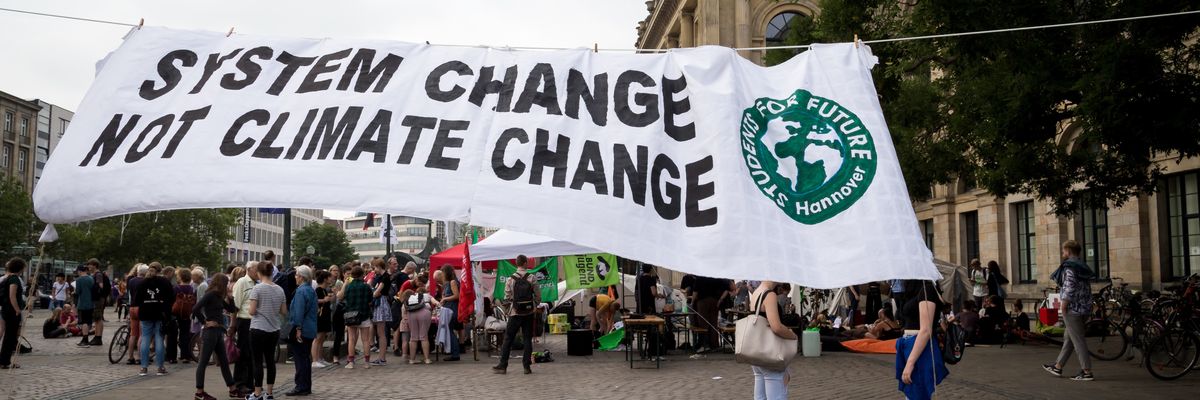
On Earth Overshoot Day, climate activists pointed out the exploitative use of the earth with a human chain and other activities in Hanover, Germany on July 29, 2019.
(Photo by Peter Niedung/NurPhoto via Getty Images)
On Earth Overshoot Day, Campaigners Say 'Move the Date' by Fixing Broken Economic System
"We still have a chance to change the broken economic system that puts profit and overconsumption before people and nature," said Greenpeace International.